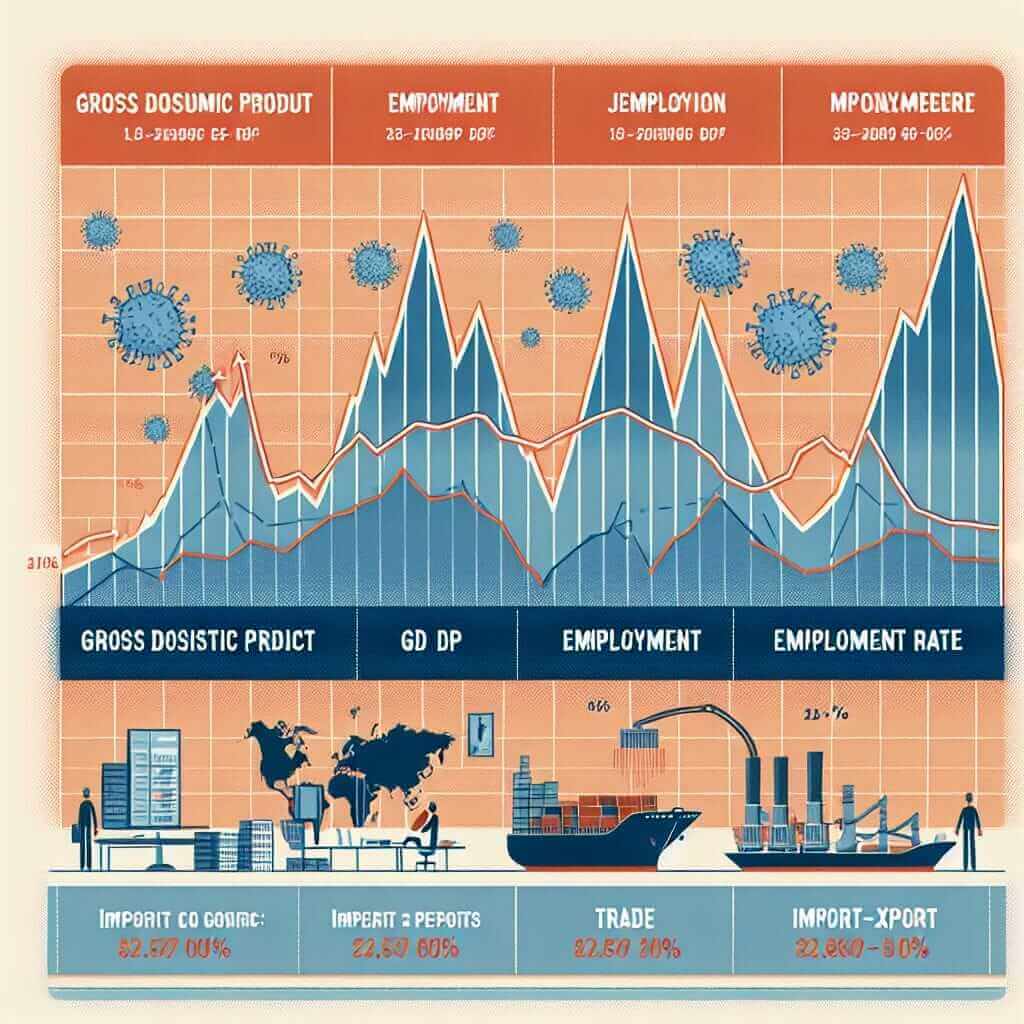The IELTS Reading section is designed to test a wide range of reading skills, including how well you read for detail, comprehend arguments, and identify writers’ opinion. One contemporary topic that has gained significance is the “Economic impact of pandemics.” Given its relevance, it’s crucial to understand this subject thoroughly, as it might appear in future exams.
In recent years, pandemics have repeatedly disrupted global economies. From COVID-19 to the older impacts of the 1918 Spanish flu, understanding the economic ramifications is not only beneficial for your IELTS preparation but also essential for general knowledge. This article provides a detailed IELTS Reading mock exam on the economic impact of pandemics, with sections on vocabulary, grammar, common mistakes, and practical advice.
Mock IELTS Reading Test
In the following section, you’ll find a detailed reading passage along with a series of questions. This is a medium difficulty text designed to mimic the structure and challenge of an actual IELTS reading passage.
Reading Passage
Economic Impact of Pandemics
The repercussions of pandemics extend far beyond the immediate health crisis, profoundly affecting global economies. The economic impact of pandemics is multifaceted, encompassing sectors such as healthcare, trade, employment, and government expenditure. Historical pandemics like the Spanish Flu of 1918 provide a grim reminder of these disruptions. More recently, the COVID-19 pandemic has vividly illustrated these economic vulnerabilities.
During a pandemic, healthcare systems are invariably overburdened, necessitating massive investments to cater to the surge in patients. This reallocation of resources often means that other sectors face budgetary constraints. For instance, the United Nations reported that during the COVID-19 pandemic, countries spent an additional 21% on healthcare while neglecting infrastructural projects.

Trade and industry activities also face substantial setbacks. The disruption of supply chains, coupled with reduced consumer demand, compels businesses to curtail production or shut down entirely. According to the World Trade Organization, global trade volumes plummeted by 9% in 2020 due to pandemic-induced disruptions. Small and medium enterprises, lacking the resilience of larger corporations, are particularly vulnerable during these periods.
Employment, another critical facet, suffers tremendously. The International Labour Organization estimated that the COVID-19 pandemic led to the loss of 255 million jobs worldwide in 2020 alone. The loss of income forces households into poverty, further exacerbating economic disparities.
Furthermore, government expenditure increases substantially as social safety nets are expanded to support unemployed workers, while tax revenues dwindle due to reduced economic activity. A report by the International Monetary Fund (IMF) noted that many governments’ fiscal deficits ballooned to unsustainable levels, necessitating long-term economic restructuring.
In summary, the economic impact of pandemics is extensive and multifactorial, necessitating robust policies and international cooperation to mitigate these adverse effects. Understanding these dynamics is essential for both economists and policymakers as they navigate the challenges of pandemic-induced economic volatility.
Questions
Question 1: Multiple Choice
- What key sector often faces increased budget allocation during a pandemic?
A. Education
B. Technology
C. Healthcare
D. Infrastructure
Question 2: True/False/Not Given
- The Spanish Flu of 1918 had a less severe economic impact compared to COVID-19.
Question 3: Summary Completion
Complete the summary with appropriate words from the passage:
Pandemics have a __ impact on the economy, affecting healthcare systems and compelling shifts in government ___. Smaller enterprises are particularly ____ due to disruptions in trade and industry.
Question 4: Matching Information
Match the statements (A-D) with the correct information (1-4).
Statements:
A. Global trade volumes showed a 9% decline.
B. Governments experienced unsustainable fiscal deficits.
C. Small and medium enterprises lacked resilience.
D. The loss of 255 million jobs globally.
Information:
- International Labour Organization
- World Trade Organization
- International Monetary Fund
- United Nations
Answer Key and Explanations
Question 1: Multiple Choice
- C. Healthcare
Explanation: During pandemics, healthcare systems often receive increased funding to manage the surge in patients.
Question 2: True/False/Not Given
- Not Given
Explanation: The passage does not directly compare the economic impacts of the Spanish Flu and COVID-19.
Question 3: Summary Completion
Pandemics have a multifaceted impact on the economy, affecting healthcare systems and compelling shifts in government expenditure. Smaller enterprises are particularly vulnerable due to disruptions in trade and industry.
Question 4: Matching Information
A-2, B-3, C-4, D-1
Explanation: The matching answers align the provided statements with the respective organizations mentioned in the passage.
Common Mistakes
- Misinterpreting statistical data: Be cautious about numbers and percentages mentioned.
- Skipping minor details: Every detail in the questions must be cross-referenced with the passage.
- Overlooking synonyms: The same idea can be expressed with different words.
Vocabulary
- Repercussions (noun): /ˌriː.pəˈkʌʃ.ənz/ – Consequences of an event.
- Multifaceted (adjective): /ˌmʌl.tiˈfæs.ɪ.tɪd/ – Having many aspects.
- Curtail (verb): /kɜːˈteɪl/ – To reduce or limit something.
- Resilience (noun): /rɪˈzɪl.i.əns/ – The ability to recover from difficulties.
Grammar Focus
Example: Use of Passive Voice
Passive structures are commonly used to highlight the result of an action rather than who performed it.
Structure: be (in appropriate tense) + past participle
Example:
Active: “The pandemic disrupted global supply chains.”
Passive: “Global supply chains were disrupted by the pandemic.”
Advice for High Scores in IELTS Reading
- Skim and Scan: Get a quick overview of the passage before diving into questions.
- Time Management: Allocate specific times for each section.
- Practice Different Question Types: Familiarize yourself with all types of questions.
- Build Vocabulary: Regularly learn and practice new words.
- Analyze Mistakes: Review your wrong answers to avoid similar errors.
Astutely following this guide will undoubtedly bolster your preparation for the IELTS Reading test, arming you with the skills needed to tackle complex topics like the economic impact of pandemics.